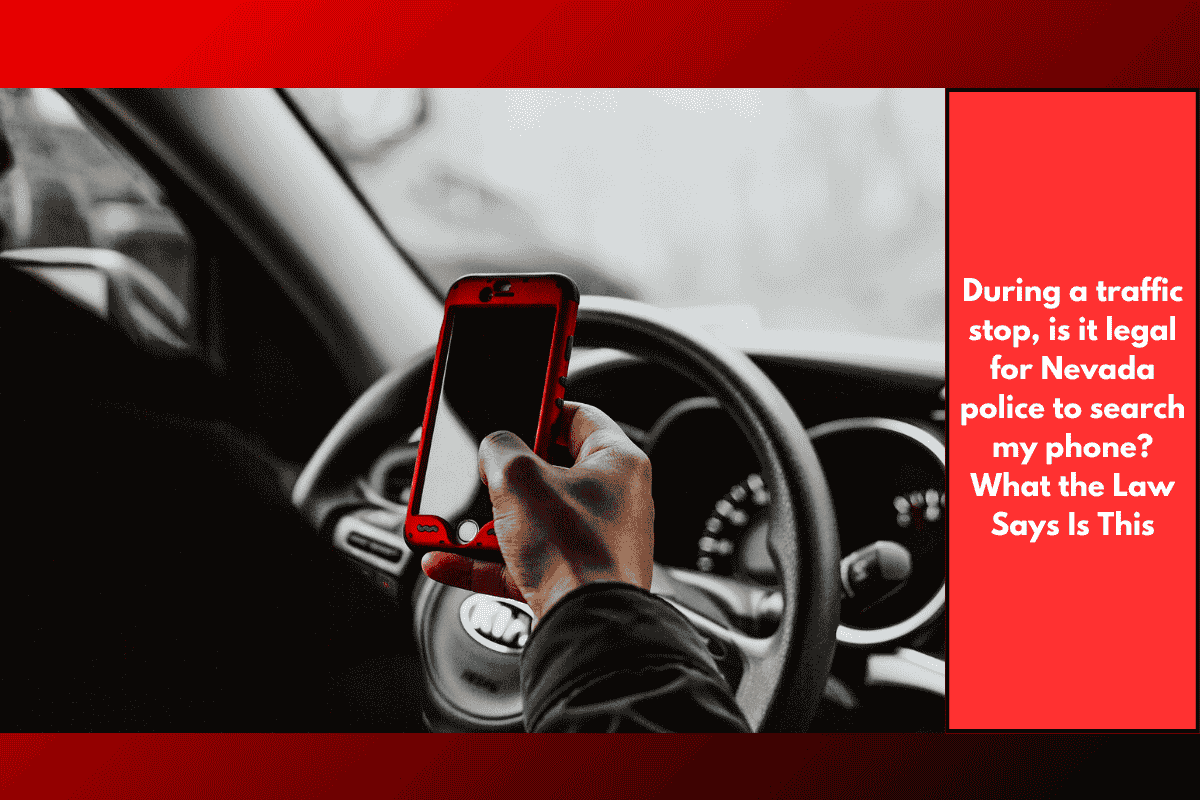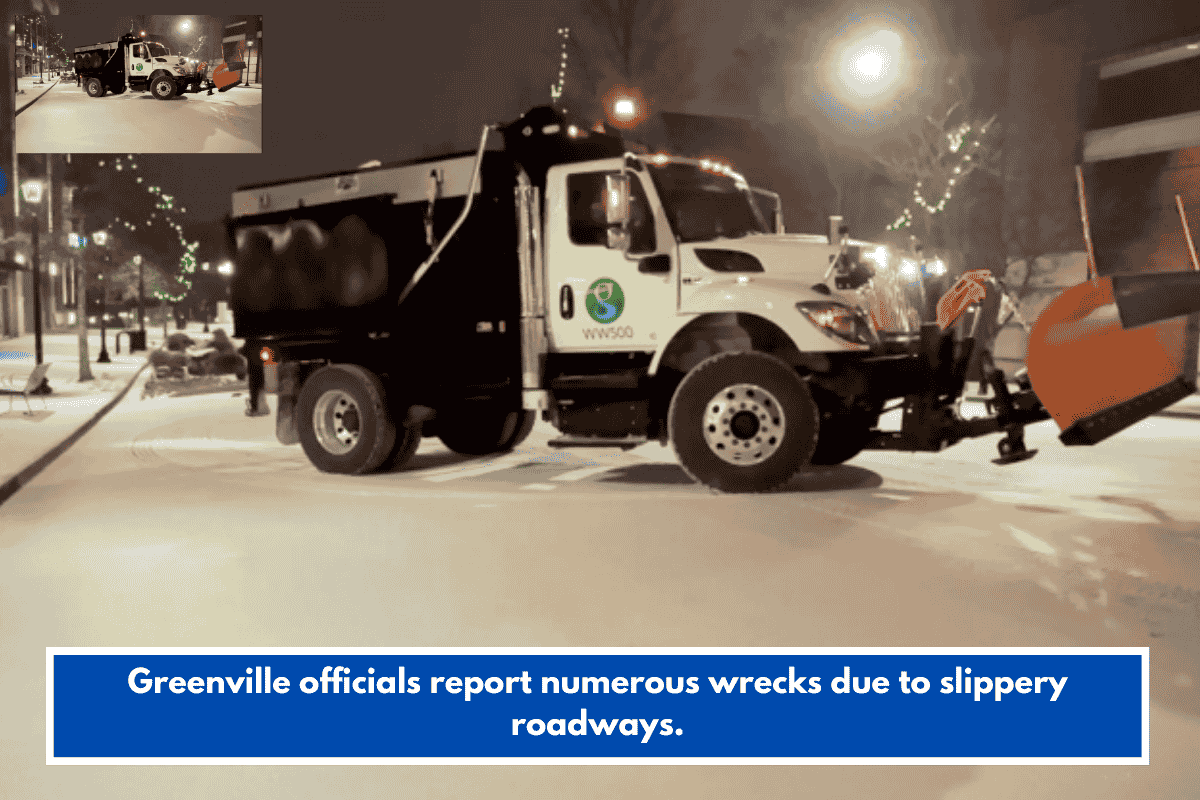In today’s digital age, smartphones hold a wealth of personal information, and it’s not uncommon for people to wonder whether law enforcement can search their phones during a routine traffic stop. If you’re in Nevada, knowing your rights and the circumstances under which police can search your phone is crucial for protecting your privacy. So, is it legal for Nevada police to search your phone during a traffic stop? Let’s break down what the law says.
The Fourth Amendment and Your Privacy Rights
The Fourth Amendment of the U.S. Constitution protects you from unreasonable searches and seizures, meaning law enforcement cannot search your phone without a valid legal reason, such as a warrant, your consent, or certain exceptions. These protections apply across the U.S., including Nevada, and they apply to your phone in the same way they protect your physical property.
Can Police Search Your Phone Without a Warrant?
The short answer is: Generally no, police cannot search your phone without a warrant during a routine traffic stop unless certain exceptions apply. However, this is where things get more complicated.
Exceptions to the Warrant Requirement
Although police cannot search your phone without a warrant in most cases, there are exceptions that may allow them to do so under certain circumstances. These exceptions include:
Consent: If you voluntarily allow a police officer to search your phone, they can do so without a warrant. However, you are under no obligation to grant permission for a search. If you refuse, they cannot search your phone unless they have another valid reason.
Search Incident to Arrest: If you are arrested during the traffic stop, the police may be able to search your phone as part of a “search incident to arrest.” This means that if you are taken into custody, police may search your phone to look for evidence related to the arrest. However, the search must be limited to the purpose of the arrest. If your phone is searched for reasons unrelated to the arrest, it may be a violation of your Fourth Amendment rights.
Exigent Circumstances: In some situations, exigent circumstances may apply, meaning police may be able to search your phone without a warrant if they believe there is an urgent need. For example, if they believe evidence is about to be destroyed or there’s an immediate threat to public safety, they may have the legal right to search your phone. However, these situations are rare and typically involve clear, immediate danger.
Probable Cause and Evidence: If police have probable cause to believe that your phone contains evidence related to a crime, they may be able to search it without a warrant during the stop. For instance, if police suspect you are using your phone to commit a crime during the traffic stop (such as texting while driving or engaging in criminal activity), they may be able to search your phone.
The Riley v. California Ruling: A Key Supreme Court Decision
A landmark U.S. Supreme Court case, Riley v. California (2014), set a critical precedent in privacy law regarding the search of smartphones. The Court ruled that police generally cannot search the contents of a smartphone without a warrant. This decision was based on the fact that smartphones contain an immense amount of personal information that goes beyond the scope of a traditional physical search.
The Riley v. California ruling means that, as a general rule, police need a warrant to search your phone unless one of the exceptions mentioned earlier applies, such as consent or a search incident to an arrest.
What Happens If You Refuse to Let Police Search Your Phone?
If you choose to refuse a request to search your phone, the police may ask for a warrant. If they do not have a valid legal reason to search your phone without your consent, they cannot do so. It’s important to remain calm and respectful when asserting your rights.
If an officer insists on searching your phone without a warrant or your consent, you have the right to politely decline and state that you do not consent to the search. If they proceed with the search despite your refusal, you may want to contact a lawyer after the stop to discuss any potential violations of your rights.
What About Your Text Messages, Photos, and Other Data?
A phone is considered to be a highly personal device, and the data stored on it, such as text messages, emails, photos, and browsing history, is protected by the Fourth Amendment. Therefore, unless one of the exceptions applies, police cannot search this data without a warrant or your permission.
The Bottom Line: Can Police Search Your Phone During a Traffic Stop in Nevada?
In most cases, no, police in Nevada cannot search your phone during a traffic stop unless you give them consent, you are arrested, or there are exigent circumstances. The Fourth Amendment protects you from unreasonable searches and seizures, and this applies to your smartphone. However, police can ask for consent to search your phone, and if you’re arrested, they may have the right to search it, depending on the circumstances.
Always remember that you have the right to refuse a search if police do not have a warrant, and it’s a good idea to be aware of your rights during any police interaction.
SOURCES
[1] https://www.shouselaw.com/nv/blog/warrant/when-are-nevada-police-allowed-to-search-my-cell-phone-do-i-have-to-give-my-passsword/
[2] https://joeygilbertlaw.com/blog/your-rights-during-police-searches-in-nevada/
[3] https://leb.fbi.gov/articles/legal-digest/legal-digest-searches-incident-to-arrest-in-the-smartphone-age
[4] https://nvcourts.gov/__data/assets/pdf_file/0024/47247/Smith_v._State,_545_P.3d_716_Nev._2024.pdf
[5] https://www.antheminjurylaw.com/nevada-bill-would-allow-phone-searches-after-crash/














